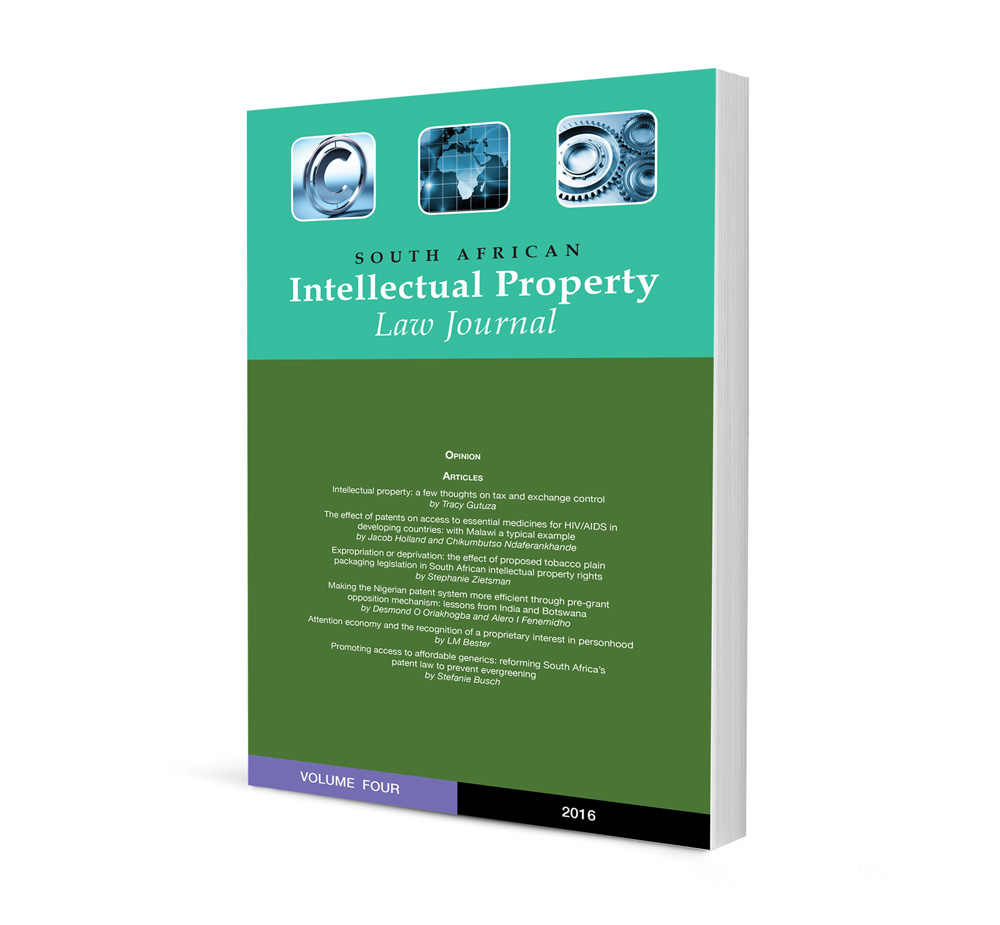Private prosecution of copyright infringements in Kenya: A comment on Albert Gacheru Kiarie t/a Wamaitu Productions v James Maina Munene & 7 others [2016] EKLR 1

Private prosecution of copyright infringements in Kenya: A comment on Albert Gacheru Kiarie t/a Wamaitu Productions v James Maina Munene & 7 others [2016] EKLR 1
Authors Jamil Ddamulira Mujuzi
ISSN: 2521-2591
Affiliations: Professor of Law, Faculty of Law, University of the Western Cape
Source: South African Intellectual Property Law Journal, 2017, p. 172 – 187
Abstract
None